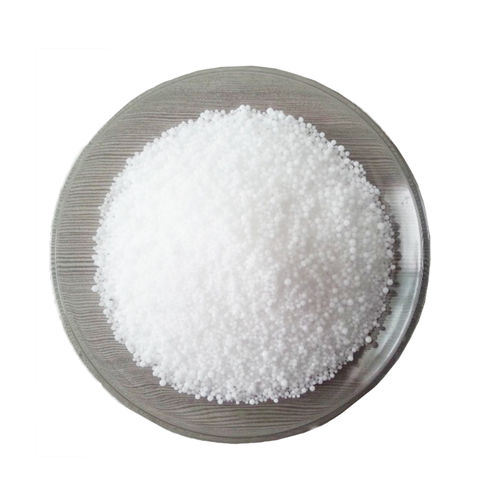Introduction to Centipede Grass
Centipede grass, known scientifically as Eremochloa ophiuroides, is a popular choice for homeowners seeking a durable and low-maintenance lawn. This turf thrives in hotter zones particularly in the southeastern US and is valued for its capacity to grow well in infertile soils. The grass type grows outwardly from the center and produces creeping tillers that form a dense mat of blades which competes favorably with weeds and has some resistance to pests and diseases.
Organic fertilizers are compatible with centipede grass. When using organic fertilizers on centipede grass over time it improves the soil health unlike synthetic fertilizers that have been known to degrade soil quality. “Organic fertilizers supply essential nutrients and organic matter necessary for building up a healthy soil ecosystem which leads to sustainable growth of grass,” says Dr Elaine Ingham, a renowned soil biologist.. This method encourages robust growth of centipede grass as well as sustains eco-friendly gardening principles by decreasing chemical run-off and preserving local biodiversity.
Understanding Organic Fertilizers
The manure, decomposing plants or plant residues forms most of organic fertilizers making them an excellent option for improving natural fertility of soil. For sustainable growth and development, plants require nutrients supplied at slow rates.
Benefits associated with applying organic fertilizers include changes in the structure of the soil leading to its improved porosity, increased water retention capacity as well as enhanced microbial activity within the soil. Unlike synthetics, organic ones do not accumulate in gardens but rather are gradually broken down into forms useable by plants thereby increasing fertility without any risk of contaminating water bodies through leaching or build-up of chemicals. As Dr Jeff Lowenfels rightly observes: “Organic fertilizers provide more than food to plants; they also improve biological activity in soils thus promoting long-term plant survival.”
To understand why one would want to use organic fertilizer for centipede grass, it is important to differentiate between organic and synthetic fertilizers. Although synthetic ones are often instant in action providing quick feeding of plants they do little to enhance soil structure or promote microbial diversity. In contrast, organic fertilizers release their nutrients slowly in a manner that mimics natural ecosystem function. Thus the slow growth rate is an advantage for centipede grass but those which have a steady supply of nutrients as opposed to sudden surges followed by falls.
Furthermore, the interaction of organic fertilizer with centipede grass involves not only nutrient supply but also the enhancement of soil health, crucial for the grass’s low-fertility needs. Using this type of fertilizer enables gardeners to feed the grass with essential minerals while at the same time creating a conducive environment free from pests and diseases through improvement of soil quality necessary for its survival.

Best Organic Fertilizers for Centipede Grass
The selection of organic fertilizer that is appropriate for centipede grass is absolutely crucial to the health and good appearance of the grass. There are different types of organic fertilizers which can be used to feed centipede grass, each type having its own characteristics and benefits.
Compost is a highly beneficial organic fertilizer for centipede grass because it supplies vital nutrients while increasing soil structure through the addition of organic matter. The nutrients in compost are released slowly which suits the even feeding required by centipede grass. Apart from this, well-rotted or composted cow or chicken manure is another option that should be considered since it eliminates danger of burning with nitrogen excess on your lawn.
Also available in stores are special products made only for such grass as centipede grass such as Espoma Organic Lawn Food and Milorganite among others. They provide a complete mixture of nutrients as well as have microbes that help in nutrient absorption and root growth.
It’s important to apply organic fertilizer on time and properly in order to maximize the benefit on this type of grass. During late spring when centipede starts growing again, one must make sure they fertilize it then again during early autumn before winter approaches. One should avoid over-feeding centipedegrass because it does not need high levels of food; actually putting too much would hurt it.
With correct choice and application time for these natural manures, planters can keep their lawns looking lovely and green thus improving their premises’ general attractiveness.
Organic Fertilizer Application Techniques
Properly applying organic fertilizer to centipede grass means as much as choosing the correct type of fertilizer. Consequently, a well-done application will enable the grass to consume all the nutrients necessary for its growth, which is thick and green without waste or environmental impact.
Methods for Applying Organic Fertilizer: For efficient composting of centipede grass it should be done through even distribution of the fertilizer using spreaders like broadcast and drop spreader. This ensures that there is uniform spreading hence no patches formed on over fertilized grass which can lead to burns and uneven growth. It is essential to follow the rates of application provided by manufacturers in order not to overuse them since both your lawn might get destroyed and at the same time you may destroy your environment.
Tools and Equipment Needed: The key tools include a spreader; either small hand-help or large push-type for use in larger gardens when applying organic fertilizers. In some cases, especially where soils are compacted, there may be need to do some work with an aerator or garden fork before you apply it. Aeration must be done before fertilizing as this helps in enhanced penetration into soils thus making fertilizers more effective.
Common Mistakes to Avoid: Among other blunders that people make while applying such kind of fertilizer on centipede grasses includes fertilizing during wrong seasons like summer peaks when there is heat which makes them grow poorly because they have been weakened leading to poor growth and discoloration of these plants.Moreover,this happens due to excessive use of manure in their farms since too much manure has effect on vegetation because it does not allow enough space for release of water from it but rather encourages evaporation.A last important factor worth mentioning here is that after putting this substance around your yard unless it’s a mineral granular which needs moisture for activation purposes.
These are just some instructions about how one should apply the organic fertilizers in order to create great results out of it on his home yard using centipede grass.

Taking care of your organic fertilizer for centipede grass
To continue to thrive and stay lush, centipede grass should be maintained regularly using organic fertilizers. Good lawn maintenance practices can improve the aesthetic value of the yard and strengthen the grass against various stresses throughout the seasons.
Tips for Regular Maintenance: It is important to mow centipede grass often, keeping it at a recommended 1.5-2 inch height in order to maintain healthy growth. This will make it denser and prevent weeds from growing. The watering must ensure deep root penetration in drought prone areas that help develop deeper roots. In late spring or early fall when centipede grass is actively growing and needing nutrients most, apply slow-release nitrogen-based formulations.
More Organic Treatments: Apart from regular mowing and watering, organic soil amendments like compost can also be incorporated into such lawns to enhance drainage and nutrient levels. Another important aspect of lawn care is aeration which involves poking small holes into soil so as to allow air, water, and nutrients to enter deep into the root zone. This leads to stronger plantings with deeper root systems. Overseeding with centipede seed in autumn may fill up empty spaces without employing any harsh chemicals thus enhancing turf density.
Common Issues Troubleshooting: Usually low maintenance centipede grass can sometimes turn yellow which could mean lack of proper nutrition or soil pH imbalance occurs due to diseases found within the ground below them . Soil testing helps identify specific needs such as more organic fertilizer or soil amendment for altering pH level respectively . Also keep an eye out for signs of insect pests or diseases; if necessary use organic pesticides that will not cause harm either to turf or adjacent environment.
By following these guidelines for maintaining centipede grass with organic fertilizer, gardeners can achieve a lush, green lawn that is both beautiful and sustainable thereby contributing positively towards local ecosystem wellbeing.
Impact of Environment and Sustainability
Centipede grass uses organic fertilizer for lawns and contributes a lot to nature conservation and sustainability. The friendly environmental way of organic fertilizers is helpful in the development of soil fertility, as well as decreasing chemical runoff contributing to ecological health at large.
Benefits for the environment: Organic fertilizers make significant progress in reducing lawn maintenance carbon footprint. On the other hand, synthetic fertilizers are often manufactured from non-renewable resources which degrades the productivity of soils as opposed to organic fertilizers that increase soil structure, enhance water holding capacity and promote biodiversity in soil ecosystem. Consequently, it leads to healthier lawns that are resilient to climatic changes and pest infestations.
Long-term Effects on Soil Health & Ecosystem: Organic fertilizers release nutrients slowly thereby matching the natural growth cycles of plants including centipedegrass. This gradual breakdown allows nutrients not be washed off into rivers or lakes due to the excessive usage of artificial fertilizers (which cause eutrophication leading to harmful algal blooms). Besides, these types of fertilizers help in increasing organic matter levels in soil which is important for carbon sequestration and curbing climate change.
The best sustainable tips towards lawn care are using mulching practices aimed at recycling grass clippings back into the soil as a natural fertilizer. Also watering can be done early morning or late evening so as to minimize evaporation and run-off whereas setting mowers higher cuts reduce watering needs by providing shade minimizing weed growth on lawns. Additionally selecting native or well adapted turf types for instance centipedegrass can further decrease water usage along with other chemicals applied.
Adopting such strategies ensures that your garden looks good while maintaining its health status while also improving overall environmental quality; this makes use of organic manure when growing centipede grass essential within an eco-friendly method of taking care of lawns.
Conclusion
In conclusion, centipede grass should be grown with organic fertilizers. Organic fertilizers help cultivate a green and sustainable lawn for centipedes. It is important that gardeners embrace the use of organic fertilizers in their lawns. The slow release of nutrients enables centipede grass to get a regular supply of nutrients necessary for vigorous growth without the risks inherent in chemical-based fertilisers.
Finally, it’s more than just organic fertilizers keeping the lawn alive; it’s an ethic towards a sustainable lifestyle that respects and nourishes nature. The rise in popularity of organic lawn care among homeowners will gradually shift communities to more sustainable practices and lead to greener spaces outside peoples’ homes for future generations. Always remember that a green lawn is not just something to be proud of but also contributes to worldwide endeavor towards ecological preservation.
You can explore the following references:
- Web Soil Survey by the USDA Natural Resources Conservation Service: This resource provides detailed soil data and information which can be crucial for determining the best organic fertilization practices for specific soil types and regions. It offers tools to analyze soil composition and health, which are essential for optimizing lawn care practices.
- ERIC – Education Resources Information Center: Managed by the Institute of Education Sciences of the U.S. Department of Education, ERIC includes a wide range of educational and research information that might cover studies on organic fertilizers and their environmental impact. This database can provide insights into sustainable practices and the ecological benefits of organic products.







